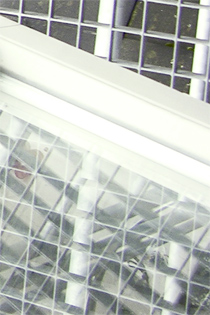Les effets retours des disciplines scientifiques sur les pratiques artistiques.
Mahalia Lassibille | 22.08.2016
Le terme « danse africaine » est fréquemment utilisé pour désigner les danses d’Afrique noire qui seraient caractérisées par un cadre musical de percussions, des mouvements du bassin… Mais à quoi correspond cette caractérisation ? Comment cette catégorie s’est-elle construite ? En quoi l’anthropologie a-t-elle pu y avoir un rôle prépondérant ? Les danses d’Afrique ont été attribuées à partir du 19e siècle au domaine de l’anthropologie qui en a déterminé les principales caractéristiques. Ces traits ont participé à [...]
Sylvine Pickel-Chevalier | 26.07.2016
Equitation in the French tradition has been registered in the Representative List of the Intangible Cultural Heritage of Humanity of UNESCO since 2011. This event questions the capacity for perpetuation of a living heritage within the contemporary society as well as the role of leisure activities and tourism, which allowed the adaptation of a way of riding formerly associated with travel and war through the practice of sports leisure activities, but also artistic and tourist representations (e.g. shows). The [...]
Patricia Legris | 12.07.2016
The teaching of social sciences has been debated since the end of the Second World War in France, disrupting the school curriculum. This paper seeks to explain the role that the actors involved in education played in integrating social sciences and making history the most important subject of study. It also shows that the desire to reform education restricts it more than it opens it to new opportunities and approaches. [...]
Réflexivité et construction des identités culturelles en Provence (France).
Laurent Sébastien Fournier | 05.04.2016
Cet article utilise un regard rétrospectif qui intègre l’histoire de l’ethnologie et de ses révisions successives pour éclairer l’ethnologisation progressive de la Provence. Ce faisant, l’ethnologisation est comprise de manière pragmatique à la fois comme un processus et un résultat, c’est-à-dire comme une lente sédimentation du savoir ethnologique qui finit par influencer à la fois le regard que les populations locales portent sur leur propre culture et les définitions qu’elles en donnent vis-à-vis des personnes — résidents temporaires ou [...]
Géraldine Pellé | 04.01.2016
Being against something is not only about being opposed to something but being closely against. In this paper, I aim to explore the subtle way of « that with which you don’t agree with » because it raises the problem of the foundations (why) and the conditions (how) of disagreement. It raises the question of the subtle balance we have to find between the conceptual legacy on which we need to build on, and the signs in experience which [...]
Jacques Lévy | 17.12.2015
Les attentats parisiens du 13 novembre appellent, pour être décryptés, une lecture géographique multiscalaire et multimétrique. De l’« hypercentre intime » de Paris à la « guerre civile mondiale à basse intensité », en passant par la France, le Proche-Orient et l’Europe, l’événement incorpore toute la complexité du moment contemporain. La place centrale des espaces et des spatialités y est manifeste. [...]
Carole Lanoix et Véronique Mauron | 15.12.2015
How can one represent time without resorting to animation ? Still images have inhabited cartography for a long time and it is only recently that the trend has changed in favour of dynamic representations. In the light of this development, we propose to revisit the use of a succession of still images to represent time. Continuing the research entitled Cosmographies, conducted at the Chôros laboratory (Swiss Federal Institute of Technology Lausanne, EPFL), we interrogate the techniques, tools and fictions [...]
Opérativité du cinéma documentaire dans les films de Marc Isaacs et de Henri-François Imbert.
Sébastien Fevry | 08.12.2015
This paper examines how documentary cinema portrays the situation of refugees who are stranded in Calais. More precisely, its purpose is to show that one of the creative possibilities of documentary film consists in transforming a “non-lieu” such as the Sangatte camp into a “lieu d’entre-mémoire” that interconnects recollections and testimonies that belong to different temporal strata. To go further, this article develops a compared analysis between Marc Isaacs’ documentary Calais: The Last Border (2003) and Henri-François Imbert’s film [...]
Jeux de miroirs autour d’un laboratoire de biologie.
Charlotte Brives | 08.12.2015
Alors que l’anthropologie s’est constituée, dans les premiers temps de sa genèse, autour d’un discours sur l’Autre lointain et ses pratiques et croyances, ses objets et méthodes ont constamment évolué. Aujourd’hui, il n’existe pas de domaine réservé sur lequel l’anthropologue ne pourrait pas travailler, enquêter, explorer. Les sciences occidentales, qui ont pendant longtemps été construites dans les écrits des anthropologues comme le référent absolu à l’aune duquel évaluer les cultures non occidentales, sont à leur tour devenues, dans les [...]
Jacques Lévy | 01.12.2015
This Traversal marks the official opening of a scientific partnership between EspacesTemps.net and the PostCarWorld interdisciplinary research project, funded by the Swiss National Science Foundation (2014-2016). As one can notice by browsing the contents of the already-published articles in this series, some papers were released before the start of the project, sometimes by authors that [...]

